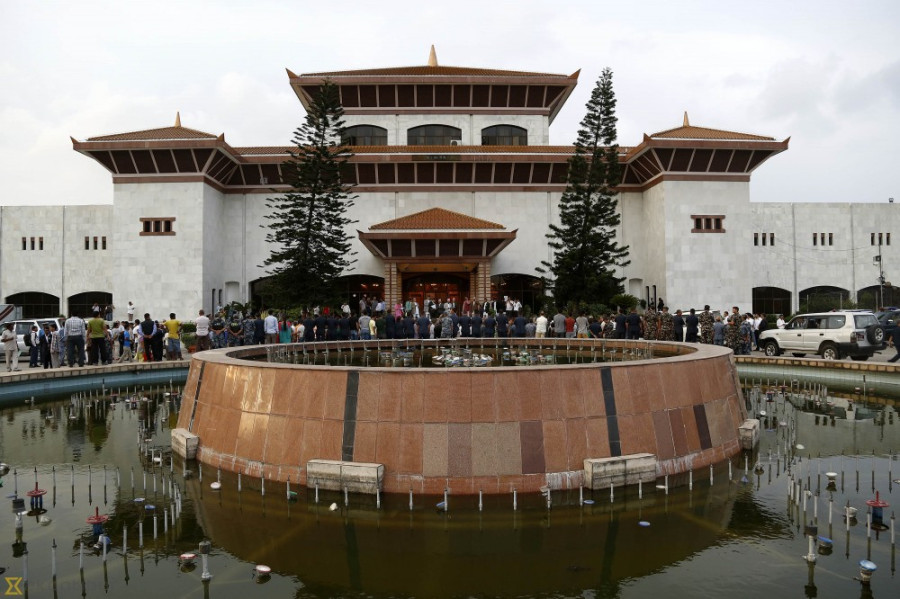National
Media Council Bill moves quietly to Parliament after remaining shrouded in secrecy for months
The secrecy surrounding the Media Council bill has given rise to fears of more sanctions on press freedoms, as existing laws are already being used to stifle journalists and the media.
The government, on Wednesday, presented the Media Council bill to Parliament, bypassing a critical consultation phase with stakeholders and the public.
The consultation phase, in practice for a long time now, is considered a critical element of the democratic exercise of lawmaking.
Drafting of the Media Council bill, which aims to replace the existing Press Council Act, started last year, but information rights activists said that the government has attempted to prevent them from accessing the bill and its contents.
“No bill in Nepal has been shrouded in such secrecy in our recent history. There was not a single consultation since the drafting of the bill began,” said Taranath Dahal of Freedom Forum, a civil liberties organisation. “The participatory phase in the lawmaking process is effectively over now.”
Dahal and his team had been relentlessly pursuing the government to get a look at the bill, in hopes of starting a dialogue about its content. But they were constantly denied access, said Dahal. Officials have been dodging requests, claiming that the bill was still being drafted, until this afternoon when they were told that getting a look at the bill wouldn’t be possible “without Information Minister Gokul Baskota’s orders”, he said.
Rojnath Pandey, spokesperson for the Secretariat of the Federal Parliament, confirmed that the bill had been brought on Wednesday and would be tabled on Thursday. Lawmakers will then have 72 hours to register amendments, but information rights activists say that this limited window is not adequate for lawmakers to go through the bill and propose substantive amendments.
This is not the first time the KP Oli administration has rushed bills and tried to place stakeholders in the dark. Last February, the Ministry of Communication and Information Technology tabled the IT Management bill in a similar manner. Stakeholders had seen a draft of the IT bill, but when it was finally tabled at Parliament, the contents had changed, surprising stakeholders, insiders said.
The secrecy surrounding the Media Council bill has given rise to fears of more sanctions on press freedoms, as existing laws are already being used to stifle journalists and the media. A recent Freedom Forum report pointed out how this government is increasingly using legal channels to circumscribe freedom of the press.
The Media Council bill, however, was drafted after consultations with stakeholders and on the recommendations of a high-level committee formed three years ago, said Rishiram Tiwari, spokesperson for the Ministry of Communications and Information Technology. It has been in the making a long time, he said.
“The bill sent to Parliament only has some minor changes from the last time we consulted with stakeholders, like expanding the boundaries of the council,” said Tiwari, who couldn’t recall when exactly the consultations had taken place.




 20.12°C Kathmandu
20.12°C Kathmandu













